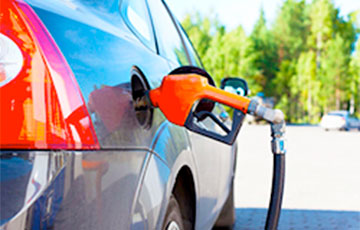Belneftekhim Responds To Belarusians’ Enquiry On Fuel Prices Decrease
29- 6.06.2019, 12:19
- 34,889

To what level will the prices for fuel rise in Belarus?
A decrease in retail prices, contrary to the statutory conditions for pricing, may lead to “negative consequences for the country's economy.” This was reported by Belneftekhim, as the concern responded to the electronic appeals with a proposal to reduce the price of petroleum products to the level in effect at the beginning of 2018, reports tut.by.
The office noted that the concern regulates the price of motor fuel in the domestic market, setting maximum prices for petroleum products, and implements its authority in full compliance with the legislation of Belarus. Retail prices set by the concern determine the upper limit of the cost of fuel, and therefore, declare a limit on the sale of fuel at higher prices than set by the concern. In turn, the network of gas stations can set any discounts on their own.
- The price should provide coverage for the economically reasonable costs of the manufacturer and profit for the expansion of production. The situation when the fuel in the republic is not sold cheaper than the marginal price means that its production and sale are carried out with a minimum margin, the Belneftekhim response says.
The concern also noted that the cost of the Belarusian fuel directly depends on the price of oil in the world market (the share of raw materials in the costs is 85–90 percent) and the rate of the Belarusian ruble. The price of oil imported into Belarus is tied to world oil prices. When making decisions on changes in marginal fuel prices, the level of fuel prices in the neighboring countries and a number of social factors are also taken into account.
“Herein, the growth of fuel costs under the reasons not dependent on us, is distributed mainly between producers of petroleum products (refineries), fuel sellers (gas station chains) and minimally affects retail prices, that is, it is not passed on to buyers.
According to official statistics, in the structure of the population’s expenditures in the first quarter of 2019, the share of fuel costs does not exceed other significant costs for citizens, such as communications services. For the average salary in Belarus in 2019, you can buy about 644 liters of AI-92 gasoline, which is almost two times more than in neighboring Ukraine, the department said.
Belneftekhim emphasizes that they set prices, adhering to the strategy of their maximum deterrence. It is impossible to establish them outside the economic rules, only at the request of the head of the concern or at the request of a group of citizens.
“A decrease in retail prices, contrary to the statutory pricing conditions, may lead to negative consequences for the country's economy. In particular, reduction of taxes and fees inflow to the republican budget, which the state sets for fuel producers (the share in the retail price is about 30 percent), as well as reducing the ability to service expensive high-tech equipment of oil refineries, which may in the near future lead to lack of competitiveness and bankruptcy of enterprises. If, as a result, it is necessary to buy fuel much more expensive in other states, then small cities where oil refineries are located will face the problem of employment of the population,” they summed up in Belneftekhim.
This year, fuel prices have changed fifteen times already. The last time was on June 2: gasoline and diesel fuel went up by 1 kapeyka. In 2018, fuel prices changed 27 times (mostly increased by a kapeyka), which Belneftekhim explained by the need for “compensation of refinery costs for the purchase of hydrocarbons”.









